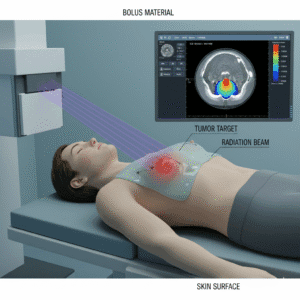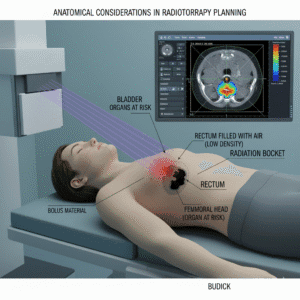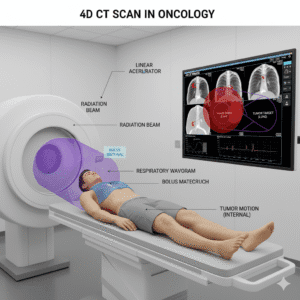
Cancer Info
Colo-Rectal cancers
What is the Incidence of Colorectal Cancer in India?
In India, the incidence of colorectal cancer is steadily rising, particularly in urban areas. According to the Indian Council of Medical Research (ICMR), colorectal cancer is one of the leading cancers in both men and women, with higher rates observed in cities and more developed regions. The increase in incidence is often attributed to changing dietary habits, sedentary lifestyles, and increased life expectancy..
What are the Major Causes and Risk Factors for Colorectal Cancer?
Several factors contribute to the development of colorectal cancer:
- Dietary Factors: High consumption of red and processed meats, and low fiber intake are associated with an increased risk.
- Smoking: Smoking increases the risk of colorectal cancer by contributing to inflammation and genetic mutations in the colon.
- Alcohol Consumption: Heavy alcohol intake is a well-established risk factor.
- Pesticides and Adulteration: Exposure to pesticides used in non-organic farming may increase cancer risk. Food adulteration, such as the use of harmful chemicals, can also contribute to colon cancer risk.
- Obesity and Lack of Physical Activity: These lifestyle factors increase the risk of developing colorectal cancer.
- Genetic Factors: Family history of colorectal cancer or inherited genetic conditions like Lynch syndrome or familial adenomatous polyposis (FAP) increases the risk.
What is the Role of Eating Organically Grown Food in Preventing Colorectal Cancer?
Eating organically grown food can potentially reduce the risk of colorectal cancer by minimizing exposure to harmful chemicals like pesticides, herbicides, and fertilizers. Organic foods are grown without synthetic chemicals, which means lower levels of harmful residues that could increase cancer risk. Additionally, organic food tends to be higher in certain nutrients and antioxidants that may have protective effects.
What Should I Eat to Lower the Risk of Colorectal Cancer?
To reduce the risk of colorectal cancer, consider the following dietary changes:
- Increase Fiber: Eat plenty of fruits, vegetables, and whole grains, which are high in fiber.
- Limit Red and Processed Meat: Reduce consumption of red meat (beef, lamb) and processed meats (bacon, sausages).
- Include Healthy Fats: Use olive oil or canola oil instead of saturated fats.
- Stay Hydrated: Drink plenty of water and fluids to support digestive health.
- Add Probiotics and Fermented Foods: Yogurt, kimchi, and other fermented foods can support gut health.
What Foods Should I Avoid to Prevent Colorectal Cancer?
To lower your risk of colorectal cancer, try to avoid or limit:
- Red Meat and Processed Meat: Limit consumption of meats like bacon, sausages, and hot dogs.
- Highly Processed Foods: Avoid junk food, sugary snacks, and deep-fried foods.
- Excessive Alcohol: Limit alcohol intake to reduce the risk.
What are the Signs and Symptoms of Colorectal Cancer?
Common symptoms of colorectal cancer include:
- Blood in the stool or rectal bleeding
- Unexplained weight loss
- Persistent abdominal pain or cramps
- A change in bowel habits (diarrhea or constipation)
- Feeling of incomplete bowel emptying
- Fatigue or weakness
- Unexplained anemia (low red blood cell count)
What Are the Screening Tests for Colorectal Cancer?
Early detection is key for better treatment outcomes. Screening tests for colorectal cancer include:
- Colonoscopy: A procedure where a doctor examines the colon using a long tube with a camera.
- Fecal Occult Blood Test (FOBT): A stool test that detects hidden blood.
- Sigmoidoscopy: Similar to a colonoscopy but examines only the lower part of the colon.
- CT Colonography (Virtual Colonoscopy): A CT scan that creates images of the colon and rectum.
What Age Group Should Be Screened for Colorectal Cancer?
In India, colorectal cancer screening is typically recommended for individuals aged 45 and above, especially if they have a family history of the disease. However, those with a higher risk due to genetic factors or a family history of colorectal cancer should begin screening earlier.
What Investigations are Done to Diagnose Colorectal Cancer?
Toggle Content
To diagnose colorectal cancer, doctors may recommend the following investigations:
- Blood Tests: To check for anemia or abnormal markers like carcinoembryonic antigen (CEA).
- CT Scan or MRI: To detect the presence of tumors and assess their size and spread.
- PET-CT Scan: To check for metastasis (spread of cancer to other organs).
- Biopsy: A tissue sample is taken from the tumor for examination under a microscope to confirm cancer.
What Should I Ask My Oncologist?
When discussing colorectal cancer with your oncologist, ask about:
- The stage and grade of your cancer
- Available treatment options and cost
- The benefits and risks of each treatment
- Potential side effects of chemotherapy and radiation
- How the treatment will affect your daily life
- Your long-term prognosis and follow-up schedule
What are the Surgical Options for Colorectal Cancer?
Surgery is the primary treatment for colorectal cancer. Types of surgery include:
- Colectomy: Removal of part or all of the colon.
- Laparoscopic (Minimally Invasive) Surgery: A less invasive option with smaller incisions.
- Abdominoperineal Resection (APR): Removal of the rectum and anus in advanced cases, requiring a permanent colostomy.
What is the Role of Radiation Therapy in Colorectal Cancer Treatment?
Radiation therapy is used to shrink tumors and destroy cancer cells. It can be used in three settings:
- Neoadjuvant Radiation: Given before surgery to shrink the tumor.
- Adjuvant Radiation: Given after surgery to kill any remaining cancer cells.
- Radical Radiation: Given as the main treatment when surgery is not an option.
What About Chemotherapy and Immunotherapy?
- Chemotherapy: Drugs that target and kill fast-growing cancer cells. It is commonly used after surgery to prevent recurrence.
- Immunotherapy: Uses the body’s immune system to fight cancer, often used in advanced or metastatic colorectal cancer with specific genetic markers.
What Are Molecular Tests and DPYD Mutation?
Molecular tests help identify genetic mutations that influence treatment decisions. For example, DPYD mutation can affect how a patient metabolizes certain chemotherapy drugs, like 5-fluorouracil (5-FU), and may require dose adjustments or alternative therapies.
How Do Advanced Radiotherapy Techniques Help?
Advanced radiotherapy techniques, such as Intensity-Modulated Radiation Therapy (IMRT) and Stereotactic Body Radiation Therapy (SBRT), provide precise targeting of tumors, minimizing damage to surrounding healthy tissues. For example, IMRT allows doctors to vary the radiation intensity in different parts of the tumor.
What is a Stoma and What Are the Types?
A stoma is an opening created surgically to allow waste to exit the body when the colon or rectum is removed. Types of stomas include:
- Colostomy: A stoma made from the colon.
- Ileostomy: A stoma made from the ileum (part of the small intestine)
How Do You Manage a Stoma?
Stoma management includes:
- Keeping the stoma and surrounding skin clean and dry.
- Using proper stoma bags and changing them regularly.
- Consulting a stoma nurse for support.
What Should I Eat During Radiotherapy?
During radiotherapy, eating soft, easy-to-digest foods like soups, smoothies, and soft fruits is recommended. Avoid spicy, greasy, or acidic foods that might irritate the digestive system. Ensure adequate hydration and maintain a balanced diet to support recovery.
·
Identify Trigger Foods: Keeping a
food diary can help identify specific foods that lead to gas production. Common
culprits include beans, cruciferous vegetables (like broccoli and cauliflower),
dairy products (for those who are lactose intolerant), and carbonated drinks.
·
Consider Smaller Portions: Eating
smaller, more frequent meals can aid digestion and reduce gas buildup.
· Stay Hydrated: Drinking plenty of water can help facilitate digestion and minimize constipation, which can exacerbate gas issues.
What is the Approximate Duration and Cost of Treatment?
The duration of treatment can vary depending on the stage and type of therapy. Chemotherapy cycles may last several months, and radiation therapy typically lasts 4-6 weeks. The cost of treatment can range from ₹1 lakh to ₹10 lakh, depending on the treatment center, the stage of cancer, and the type of therapy required.
How Does Exercise and Yoga Help in Colorectal Cancer Management?
Exercise and yoga can help improve overall physical and mental well-being during cancer treatment. They can reduce fatigue, improve digestion, and support immune function. It is important to consult your doctor before starting any exercise program.
What is the Follow-Up Schedule and Tests After Treatment?
Post-treatment follow-up is done every 3-6 months and typically includes one or more of the below :-
- Physical exams: To check for signs of recurrence.
- Blood tests: To monitor for recurrence like S.CEA.
- Camera tests: sigmoidoscopy or colonoscopy
- Imaging tests : PetCT or MRI/CT scans.
It is very important you do not miss your followup schedules which is atleast for 5 years post treatment.




